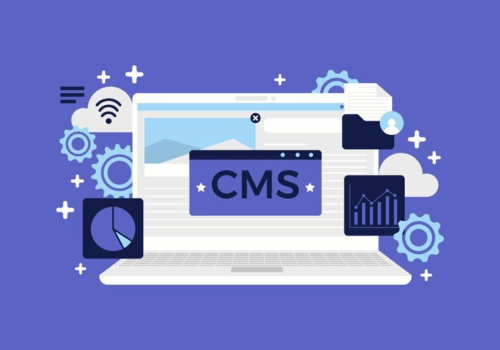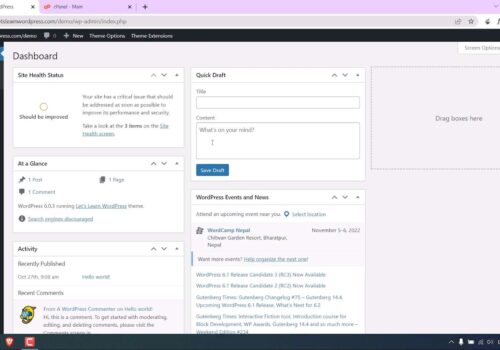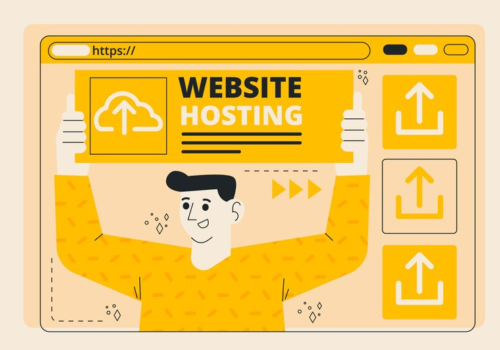Common Site Builder Mistakes and How to Avoid Them
Building a website can be set up quickly and easily now with the help of website builders. They allow you to start building your site without much technical knowledge, which makes it easy for everyone to start creating and sharing their work online. The problem is that many people don’t know how to use a website builder correctly. Let’s face it. This leads to a mish-mash of disorganized content barely used by anyone. This blog will briefly show you the common mistakes people make when building a site and how to avoid them.
Not Understanding Your Audience
If you want your site to succeed, your first step is understanding who your audience is and what they want from you or your business. If you don’t know who they are yet, it’s not too late — start by thinking about who would use the website and why they’d want to visit it. What would their needs be? What problems could it solve for them?
Once you have an idea of who your audience is and what they need from you, create a persona for them based on what information you have from market research or surveys. This will help you create content that resonates with them and helps convince them that this website is worth their time.
Not Integrating Social Media
Many businesses struggle with social media because they don’t have the time or resources to manage multiple profiles across multiple platforms. With Facebook and Instagram, for example, you need separate accounts for each platform, and that’s if you want different pages — if not, then you have to use the same account for both platforms.
The good news is that many website builders integrate social media into their products so that you can have a single profile across multiple networks without having to maintain multiple accounts on different websites. This saves time and helps ensure consistency across your brand’s online presence.
Choosing the Wrong Platform
If you’re just starting building your own website, plenty of tools out there make things easy for beginners. But even if you’re not a beginner, choosing the right platform can be challenging. Some platforms allow users to edit their designs in a visual or drag-and-drop editor, while others require coding expertise. The more advanced your skills, the more critical it is to choose a platform to support them.
Not Having an Active Blog
You should add a blog section to your site builder website because it gives you more opportunities to engage with your visitors and establish yourself as an authority in your industry. A blog section also gives visitors another way to connect with the company or brand behind the site builder, leading to increased sales. It’s easy for customers to access more information about their desired product or service without leaving their browser window or visiting another website entirely.
Not Featuring Reviews
Having a lot of reviews on your website is one of the best ways to boost your SEO and gain the trust of potential customers. Reviews like casinoudendansklicens.org are also great for site visitors to see what other people think about your business.
However, many website builders don’t allow you to add reviews until you upgrade to their premium plans. This can make it difficult for businesses trying to grow their online presence without spending much money.
Trying to Do Everything On Your Own
Many think using a site builder is like having a little helper on call 24/7. They believe that all they have to do is pick something from the menu, and the site builder will do the rest for them. Unfortunately, this isn’t true! Site builders are there to get your site up and run quickly, but only if you know what you’re doing. If you don’t understand what each feature does or how each component works together, then it’s highly likely that you’ll end up with a site that looks like it was built by someone who doesn’t know what they’re doing!

Not Getting a Custom Domain
Many site builders don’t offer the ability to register a custom domain name. This means that you have to stick with their subdomain, which is similar but not as professional-looking as having your domain name. It also means that if you ever want to transfer your website elsewhere, it’ll take longer and cost more money than if you had registered a custom domain.
The solution? Choose a site builder that allows you to buy your custom domain name so that it’s easy to move your website if needed.
Using the Wrong Type of Site Builder
If you’re just starting, you might think that any website builder will do. But the truth is that some site builders are better than others. The best website builders have a lot in common with what makes a good website: They’re easy to use and customize. And they’re built for businesses, not consumers.
The best site builders are designed for professionals who need to build websites for clients or their businesses. They offer more features, flexibility, and customization options to create an online presence that’s unique to your business.
Ignoring the Mobile-Optimized Version
Most people don’t think about how their site looks on mobile devices until it’s too late or never think about it at all. This is a huge mistake because it means that visitors who come from mobile devices will have a terrible experience and might never return. If you want people to buy anything from your store, you need to make sure that your store works well on mobile devices.
If your website builder doesn’t let you create separate versions of pages for mobile users, look for one that does. Most modern site builders have this feature built-in, so it shouldn’t be hard to find one that fits your needs.
Conclusion
A website builder can be a great way to create your blog. However, chances are you’ll make mistakes when using one if you don’t know what you’re doing. Hopefully, this article will help you if you decide to create your blog with the help of a free website builder software service.





